 |
The enemy of accountability is ambiguity, and even when a team has initially committed to a plan or a set of behavioral standards, it is important to keep those agreements in the open so that no one can easily ignore them.
|
214 |
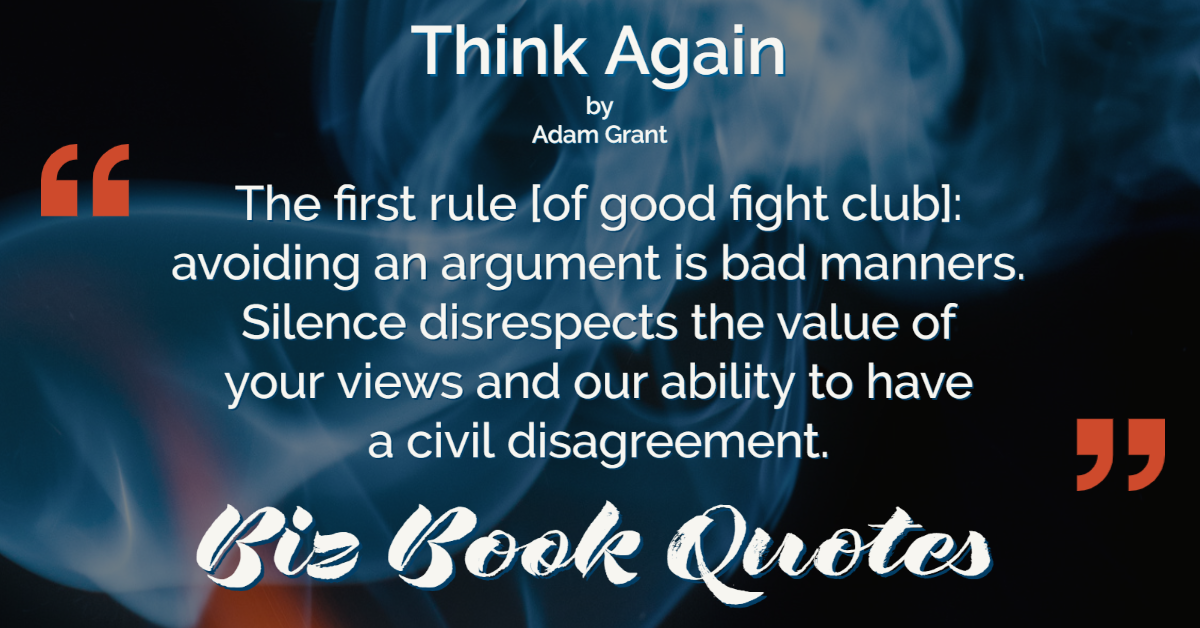 |
The first rule [of good fight club]: avoiding an argument is bad manners. Silence disrespects the value of your views and our ability to have a civil disagreement.
|
87 |
 |
Agreeableness is about seeking social harmony, not cognitive consensus. It’s possible to disagree without being disagreeable.
|
89 |
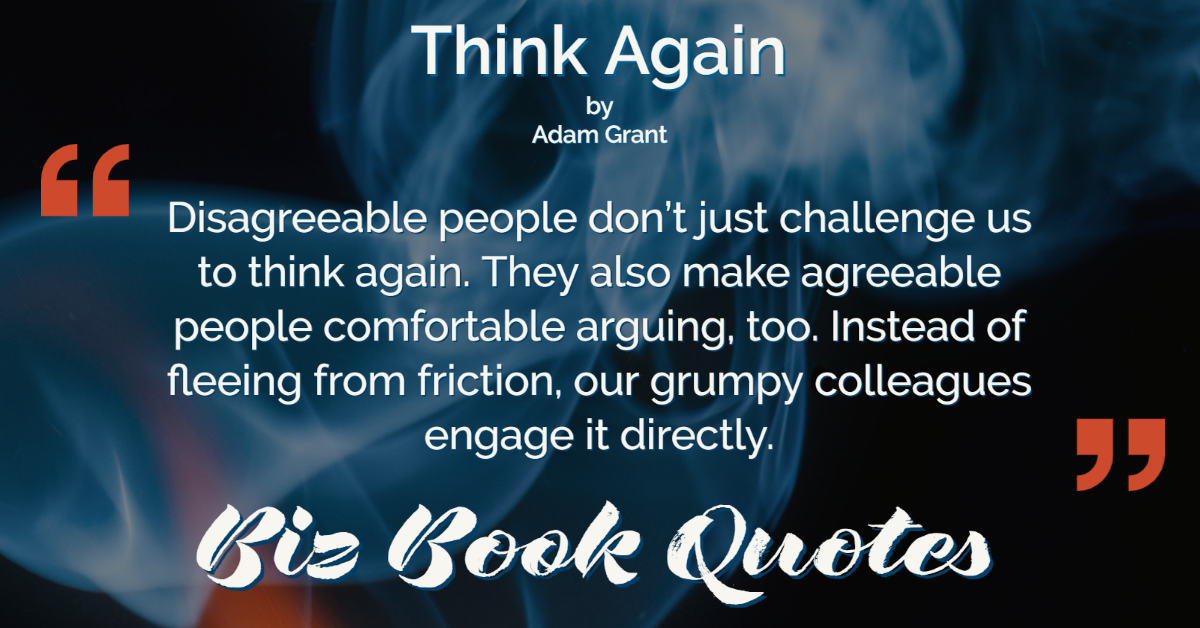 |
Disagreeable people don’t just challenge us to think again. They also make agreeable people comfortable arguing, too. Instead of fleeing from friction, our grumpy colleagues engage it directly.
|
90 |
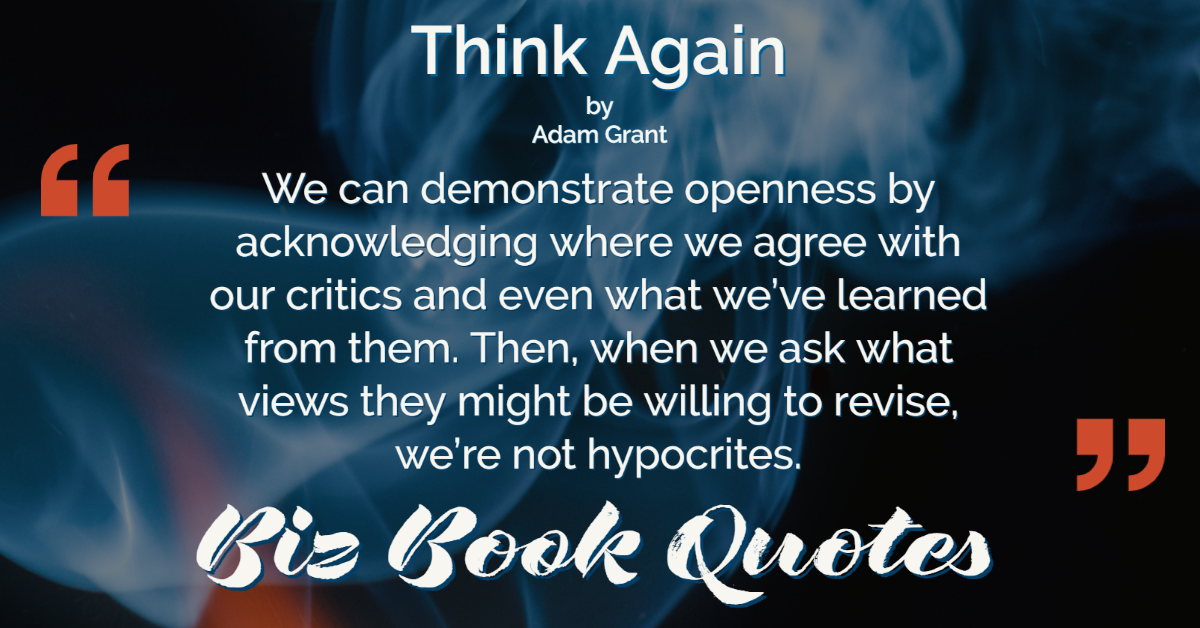 |
We can demonstrate openness by acknowledging where we agree with our critics and even what we’ve learned from them. Then, when we ask what views they might be willing to revise, we’re not hypocrites.
|
107 |
 |
When people ignore advice, it isn’t always because they disagree with it. Sometimes they’re resisting the sense of pressure and the feeling that someone else is controlling their decision.
|
150 |
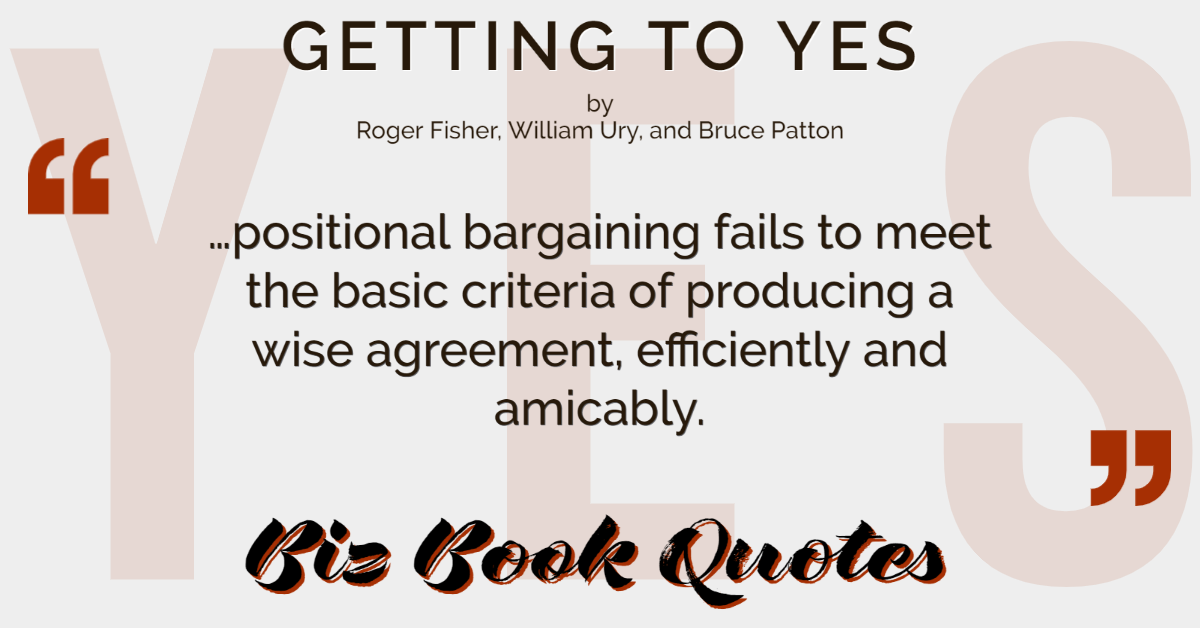 |
…positional bargaining fails to meet the basic criteria of producing a wise agreement, efficiently and amicably.
|
4 |
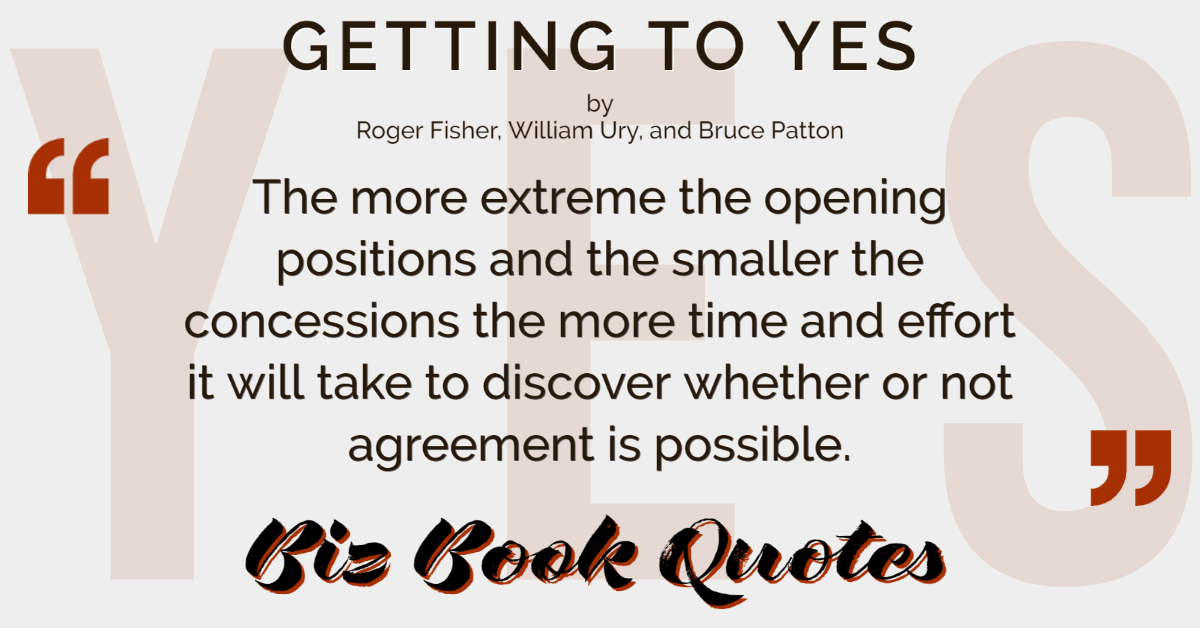 |
The more extreme the opening positions and the smaller the concessions the more time and effort it will take to discover whether or not agreement is possible.
|
7 |
 |
…any negotiation primarily concerned with the relationship runs the risk of producing a sloppy agreement.
|
10 |
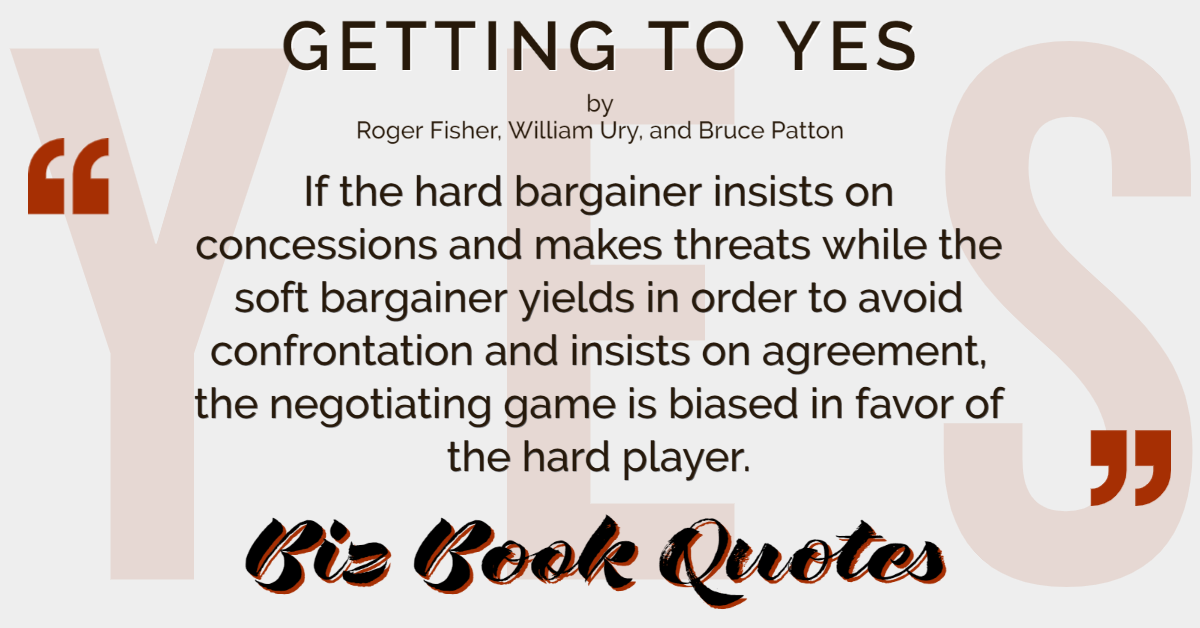 |
If the hard bargainer insists on concessions and makes threats while the soft bargainer yields in order to avoid confrontation and insists on agreement, the negotiating game is biased in favor of the hard player.
|
10 |